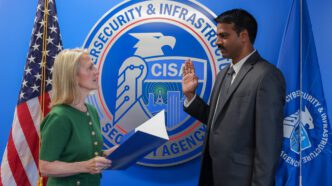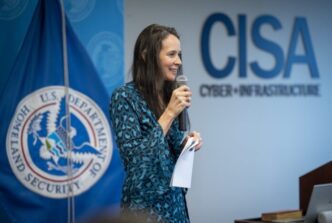Madhu Gottumukkala has officially stepped into the role of Deputy Director at the U.S. Cybersecurity and Infrastructure Security Agency (CISA), bringing a mix of state leadership experience and private sector insight to one of the nation’s top cybersecurity positions.
Gottumukkala previously served as South Dakota’s Commissioner and Chief Information Officer at the Bureau of Information and Technology. In April, the state publicly thanked him for his contributions and acknowledged his new federal role. Before his time in state government, he held senior positions at organizations like Sanford Health, CallHealth, and Polycom, where he focused on digital transformation and IT leadership.
Now at CISA, Gottumukkala says he’s ready to build on the agency’s work by promoting cooperation between federal, state, local, and private-sector entities. He emphasized the importance of partnerships and trust in addressing the systemic cyber risks facing U.S. infrastructure.
“Having worked closely with CISA during my time at the state level, I’ve seen how vital their mission is,” said Gottumukkala. “I’m excited to strengthen those connections and help create a more resilient cybersecurity ecosystem across the country.”
Despite this high-level appointment, CISA still lacks a permanent director. Bridget Bean continues to serve as acting director following the departure of Jen Easterly. Meanwhile, the Trump campaign has nominated Sean Plankey, a former cyber official at the Department of Energy and the White House, to lead the agency. But his nomination is stalled in the Senate.
Senator Ron Wyden has blocked Plankey’s confirmation, demanding that CISA release a previously undisclosed 2022 report outlining weaknesses in U.S. telecommunications infrastructure. That report is believed to detail how China-linked threat actors targeted major American telecom providers in attempts to access sensitive communications, including those involving senior government officials.
The situation is further complicated by recent budget proposals from the White House, which aim to slash CISA’s funding by $491 million. The administration argues that the agency has focused too much on online content moderation, calling it part of a “censorship industrial complex” rather than prioritizing core cyber defense.
As CISA navigates leadership changes, political hurdles, and shifting funding priorities, Gottumukkala’s appointment brings a stabilizing force. With deep public-sector roots and a private-sector mindset, he’s stepping into the role at a time when national cybersecurity strategy is more critical—and contested—than ever.













